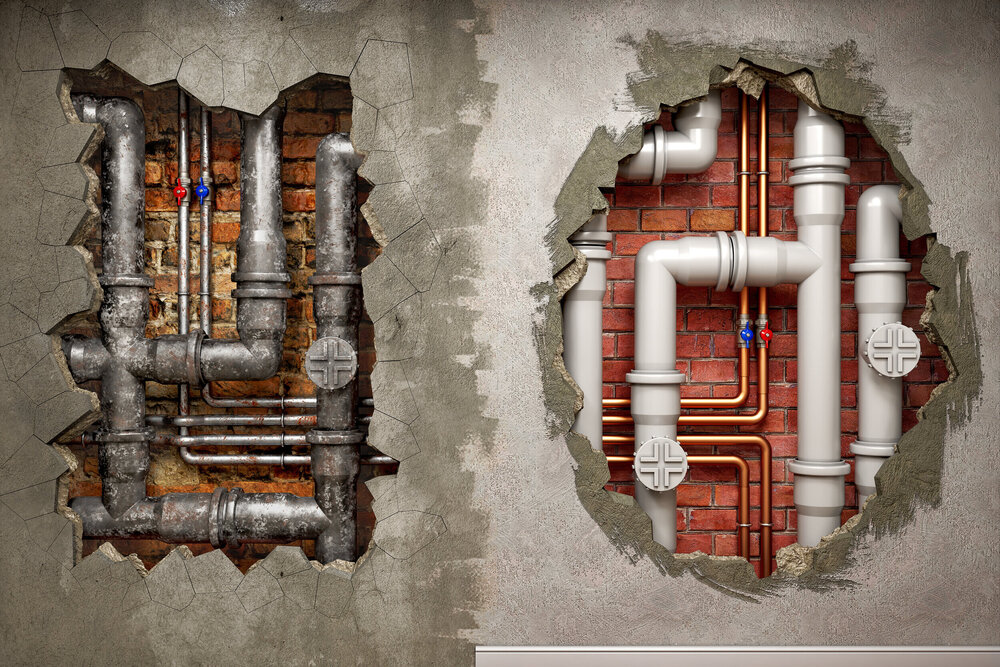Signs of Hard or Soft Water And How to Manage It
Water plays a critical role in our homes every single day, but not all water is the same. If you’ve noticed spots on your dishes, dry skin, or soap that just won’t lather, you might be dealing with hard water. On the flip side, if your water feels slippery or causes excessive soap suds, soft water could be the cause.
Understanding the difference between hard and soft water can help you protect your plumbing, improve water quality, and even extend the life of your appliances.
What’s the Difference Between Hard and Soft Water?
- Hard water contains high levels of dissolved minerals, primarily calcium and magnesium.
- Soft water has been treated to remove those minerals, often replacing them with sodium or potassium ions.
Neither type is dangerous to your health, but both can cause problems around the house—just in different ways.
Signs of Hard Water
- White or Chalky Buildup. Also known as limescale, this mineral residue often appears on faucets, showerheads, or inside kettles and coffee makers.
- Dry Skin and Hair. Hard water doesn’t rinse away soap as effectively, which can leave residue on your skin and hair—causing dryness or irritation.
- Soap Scum in Showers and Sinks. When soap reacts with calcium in hard water, it forms a stubborn film that clings to surfaces and is hard to clean.
- Reduced Appliance Efficiency. Mineral buildup inside water heaters, dishwashers, and washing machines can lower efficiency and shorten their lifespan.
- Faded Laundry. Hard water can make detergent less effective, leaving your clothes stiff or faded over time.
Signs of Soft Water
Soft water often feels more luxurious, but it can come with its own set of clues:
- Slick or Slippery Feel. Water that feels “too soft” might leave a slippery film on your skin after washing—caused by soap rinsing away more completely.
- Lots of Suds. If your soap or shampoo lathers more than usual, it’s likely due to softened water.
- Corrosion in Pipes (in rare cases). In older homes with copper pipes, very soft water can accelerate corrosion over time, though this is less common with modern plumbing materials.
How to Test Your Water
If you’re unsure whether your water is hard or soft, there are a few ways to test it:
- Home water test kits: Available at hardware stores or online
- Bottle test: Fill a bottle halfway with tap water, add a few drops of liquid soap, shake it—few suds mean hard water
- Professional testing: For the most accurate results, schedule a professional water analysis
How to Manage Hard or Soft Water
If your water is causing problems, here’s what you can do:
For Hard Water:
- Install a Water Softener. A whole-house water softener system removes calcium and magnesium through ion exchange, helping protect your plumbing and appliances.
- Use Specialized Cleaning Products. Look for detergents and soaps designed for hard water to minimize residue and spotting.
- Descale Appliances Regularly. Use vinegar or a descaling solution to remove buildup from coffee makers, dishwashers, and showerheads.
For Soft Water:
- Monitor Sodium Intake. Softened water adds small amounts of sodium. If you’re on a low-sodium diet, consider using a reverse osmosis filter at the tap for drinking water.
- Adjust Soap Usage. Since soap lathers more in soft water, you can use less—saving money and avoiding slippery residue.
- Talk to a Pro if You Notice Corrosion. If your plumbing is showing signs of corrosion, a plumbing expert can help assess whether overly soft water is to blame and recommend a solution.
Need Help? Call Fischer Plumbing!
Whether you’re dealing with the effects of hard water, soft water, or you’re not sure what’s flowing through your pipes, Fischer is here to help. We can perform a water quality test, recommend the best filtration or softening system for your home, and ensure your plumbing stays in top shape for years to come.




